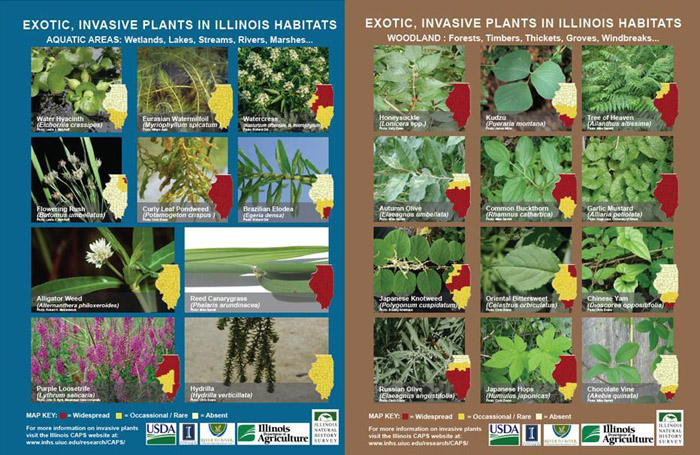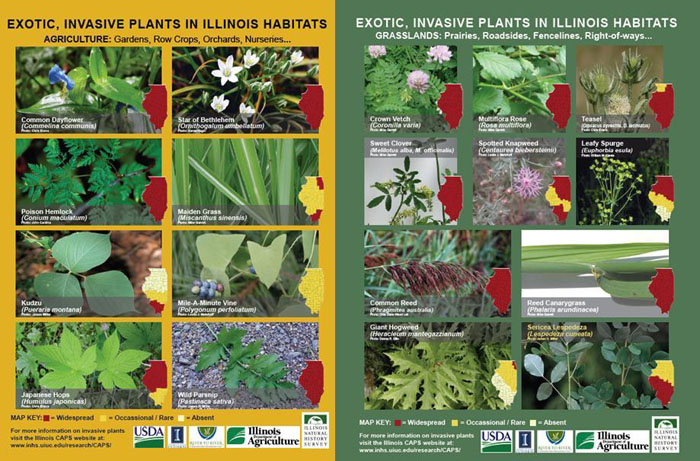Issue 5, May 21, 2010
Know Your Invasives: Learn to Identify Locally Invasive Plants
During a time of year when gardens are being planted, crops are being cultivated, and yards are being adorned with flowers, it is ever so important to be able to recognize what plants are invasive.
What are invasive plants?
Invasive plants are nonnative species that colonize a new area (intentionally or unintentionally) whose introduction does or is likely to cause economic or environmental harm or harm to human health. These plants are able to gain an ecological edge in these environments since the insects, diseases, and foraging animals that would have normally kept it in check in its native range, are not present in its new habitat.
Why are they important?
Sometimes exotic plants from other parts of the world can be welcomed, manageable additions to our gardens, but that is not always the case. Invasives can disrupt habitats. Some do so aggressively and can quickly overtake large areas, replacing native species. Other may only colonize a small area, but take years to eradicate.
How you can help.
- Verify the plants you are buying for your yard or garden are not invasive.
- Replace invasive plants in your garden with non-invasive alternatives (More information can be found at Landscape Alternatives for Invasive Plants of the Midwest [Adobe PDF] and Invasive Plants of the Chicago Region with Planting Alternatives).
- Volunteer at your local park, refuge, or wildlife area to help remove invasive species.
- Help educate others about the threat of invasive species.
- Visit the Illinois Invasive Species Awareness Month web page to learn more about what you can do.
Species of Concern in Illinois
In each future newsletter we will be highlighting an invasive plant that is a threat to Illinois. A four poster series published by the University of Illinois/Illinois Natural History Survey, USDA, Illinois Department of Agriculture, and the River to River Cooperative Weed Management Area highlights invasive plants that are a threat to Illinois' grassland, woodland, agriculture and aquatic areas. PDF versions of these posters can be found here.--Kelly Estes


Author:
Kelly Estes